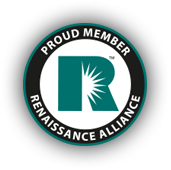Common Exclusions in Florida Commercial Property Insurance Policies (And How to Avoid Them)
See How We're Different
or call us: 954-233-0733
If you own a commercial property in Florida, it's crucial to have the right insurance coverage to protect your investment. However, not all policies are created equal, and there are common exclusions that you need to be aware of. In this article, we will explore the common exclusions in Florida
commercial property insurance policies and provide helpful tips on how to avoid them.
Understanding Florida Commercial Property Insurance Policies
Before we delve into the exclusions, let's first discuss what Florida commercial property insurance policies entail. These policies are designed to protect the physical structure of your business property, as well as its contents, from various risks such as fire, theft, and vandalism.
Florida, known as the Sunshine State, is a popular destination for businesses due to its thriving economy and favorable climate. However, with the benefits of operating in Florida come certain risks that business owners must be prepared for. Commercial property insurance provides the necessary coverage to safeguard your investment and ensure the continuity of your business.
When you own a commercial property, whether it's an office building, retail store, or warehouse, you are exposed to a range of potential hazards. Fire, one of the most common risks, can cause devastating damage to your property and disrupt your operations. Theft and vandalism are also prevalent concerns, as criminals may target your business for financial gain or out of malicious intent.
Key Terms and Definitions
Before delving into the exclusions themselves, it's essential to familiarize yourself with some key terms and definitions commonly used in commercial property insurance policies. Understanding these terms will help you navigate your policy more effectively.
One important term to know is "covered property," which refers to the physical assets that are protected under the insurance policy. This can include the building itself, equipment, inventory, and even outdoor fixtures such as signs or fences. It's crucial to have a clear understanding of what falls under the umbrella of covered property to ensure you have adequate coverage.
Another term to be aware of is "peril," which refers to the specific risks or events that are covered by the insurance policy. Common perils include fire, lightning, windstorm, hail, explosion, and smoke damage. Each policy may have different perils listed, so it's important to review your policy carefully to ensure you have coverage for the risks most relevant to your business.
Deductible is another key term to understand. This is the amount of money you, as the policyholder, are responsible for paying out of pocket before the insurance coverage kicks in. The deductible amount can vary depending on your policy and can significantly impact your out-of-pocket expenses in the event of a claim.
Importance of Commercial Property Insurance
Commercial property insurance is crucial for any business owner in Florida. It provides financial protection in the event of unexpected damage, ensuring that your business can recover quickly and continue to operate smoothly.
Imagine a scenario where a fire breaks out in your office building, causing extensive damage to the structure and destroying valuable equipment. Without commercial property insurance, you would be left to bear the financial burden of repairing or rebuilding your property, as well as replacing the damaged assets. This could lead to significant financial strain and even the possibility of bankruptcy.
However, with the right commercial property insurance policy in place, you can have peace of mind knowing that your insurance provider will help cover the costs of repairing or rebuilding your property, as well as replacing any damaged or stolen assets. This allows you to focus on getting your business back up and running without the added stress of financial hardship.
In addition to providing coverage for physical damage, commercial property insurance often includes business interruption coverage. This type of coverage helps compensate for lost income and ongoing expenses if your business is forced to temporarily close due to a covered event. It can help cover rent, employee salaries, and other necessary expenses, ensuring that your business can weather the storm and resume operations as soon as possible.
Overall, commercial property insurance is an essential investment for any business owner in Florida. It not only protects your physical assets but also provides the
financial support necessary to recover from unexpected events and keep your business running smoothly. By understanding the key terms and definitions associated with these policies, you can make informed decisions when selecting coverage and ensure that you have the right protection in place.
Identifying Common Exclusions in Florida's Policies
While commercial property insurance policies offer valuable coverage, they also come with certain exclusions. Being aware of these exclusions can help you make informed decisions and take additional steps to protect your business appropriately.
Florida, known for its beautiful beaches and sunny weather, is not without its fair share of natural disasters. One common exclusion in Florida commercial property insurance policies is coverage for natural disasters such as hurricanes, floods, and earthquakes. Given the state's vulnerability to these events, it's crucial to understand the extent of your coverage and consider additional policies or endorsements to fill any gaps.
When it comes to protecting your business, it's not just the external factors you need to consider. Another exclusion to be aware of involves specific aspects of your building structure. This may include exclusions for wear and tear, faulty construction, or maintenance-related issues. While you may have coverage for unexpected events like fire or theft, it's important to ensure you thoroughly review your policy to understand the limitations and potential risks associated with your building's structure.
Commercial property insurance policies may also have exclusions for certain types of property or equipment. For example, coverage for high-value items like artwork, valuable documents, or specialized machinery may require additional endorsements or separate policies. These exclusions are put in place to ensure that the insurance company can accurately assess the risk associated with these items and provide appropriate coverage.
It's important to note that exclusions can vary from one insurance provider to another, so it's essential to carefully review your policy and discuss any concerns or questions with your insurance agent. By understanding the exclusions in your commercial property insurance policy, you can take proactive steps to mitigate potential risks and ensure that your business is adequately protected.
The Impact of Exclusions on Your Business
Understanding the impact of these exclusions on your business is essential for effectively managing risks. The following are some potential consequences you may face:
Financial Risks and Consequences
Uncovered damages resulting from excluded events can lead to significant financial burdens. Without proper coverage, you may be responsible for repair and replacement costs out of pocket, potentially jeopardizing your business's financial stability.
For instance, imagine your business is a small restaurant located in a coastal area prone to hurricanes. If your insurance policy excludes coverage for hurricane damage, you would be left to bear the brunt of the costs associated with repairing any structural damage caused by a hurricane. This could include expenses for rebuilding walls, replacing windows, and repairing electrical systems. Such unexpected financial burdens could strain your business's cash flow and hinder its growth.
Furthermore, the financial risks extend beyond the immediate repair costs. If your business is unable to operate during the restoration period, you may experience a loss of income. This loss can be particularly detrimental to small businesses that heavily rely on consistent cash flow to cover expenses such as employee salaries, rent, and utilities.
Operational Challenges Due to Exclusions
Exclusions in your commercial property insurance policy can also result in operational challenges. For example, if your business is located in a high-risk area prone to natural disasters, such as a flood zone, the lack of coverage for these events can hinder your ability to recover quickly and resume operations.
Consider a scenario where your business is a retail store situated in a flood-prone area. If your insurance policy excludes coverage for flood damage, any flooding that occurs could leave your store temporarily closed. The time required to clean up, repair, and restock your inventory can significantly impact your ability to serve customers and generate revenue. This interruption in operations may also lead to a loss of customer trust and loyalty, as they may turn to your competitors during the closure.
Moreover, the operational challenges resulting from exclusions can extend beyond physical damage. Some insurance policies may exclude coverage for business interruptions caused by events such as power outages or cyber attacks. In today's digital age, where businesses heavily rely on technology and online platforms, such exclusions can disrupt your ability to conduct transactions, communicate with customers, and manage inventory effectively.
In conclusion, the impact of exclusions on your business goes beyond the immediate financial risks. It can hinder your ability to recover from unforeseen events, lead to operational challenges, and potentially damage your reputation. Therefore, it is crucial to carefully review and understand the exclusions in your insurance policy to ensure adequate coverage and protection for your business.
Strategies to Avoid Policy Exclusions
While it may not be possible to eliminate all exclusions, there are strategies you can employ to minimize potential gaps in coverage:
Thoroughly Reviewing Your Policy
Before finalizing your commercial property insurance policy, take the time to thoroughly review it. Pay attention to the fine print and understand the specific exclusions listed. This will help you gain a comprehensive understanding of what is covered and what is not. It is important to be aware of any limitations or restrictions that may apply to your policy.
Additionally, make sure to familiarize yourself with the policy's definitions and terms. This will ensure that you have a clear understanding of how coverage is provided and under what circumstances. By being well-informed, you can make more informed decisions and avoid potential surprises in the event of a claim.
If you have any questions or concerns during the review process, don't hesitate to reach out to your insurance agent for clarification. They are there to help you navigate the complexities of your policy and can provide valuable insights.
Seeking Professional Advice
Consider consulting with an experienced insurance professional who specializes in commercial property insurance. They have extensive knowledge and expertise in this field and can provide valuable insights into your specific coverage needs.
An insurance professional can help you identify any potential gaps in coverage that you may have missed during your own review. They have a keen eye for detail and can spot exclusions or limitations that may not be immediately apparent to you.
Furthermore, an insurance professional can offer guidance on policy endorsements or additional coverage options that may be necessary for your business. They can assess your unique needs and recommend specific solutions to mitigate risks not covered by your primary commercial property insurance.
Considering Additional Coverage Options
Based on your business's unique needs and location, it may be necessary to consider additional coverage options. While your primary commercial property insurance provides essential coverage, there may be specific risks or exposures that require additional protection.
For example, if your business is located in an area prone to natural disasters such as hurricanes or earthquakes, you may want to consider purchasing separate policies or endorsements that specifically address these risks. This can help ensure that you have adequate coverage in the event of a catastrophic event.
Additionally, if your business engages in activities that are not covered by your primary policy, such as cyber liability or professional liability, it is important to explore separate coverage options. By doing so, you can protect your business from potential financial losses resulting from these specific risks.
When considering additional coverage options, consult with your insurance agent or an insurance professional. They can assess your unique situation and recommend the most suitable solutions to enhance your overall coverage.
Navigating Claims with Exclusions
Despite your best efforts, there may still be instances where exclusions come into play when filing an insurance claim. Here are some steps you can take in such situations:
Steps to Take When a Claim is Denied
If your claim is denied based on an exclusion, it's important not to panic. Review your policy, gather any necessary documentation, and contact your insurance provider to discuss the denial. Sometimes, a simple clarification or additional information may resolve the issue.
Legal Recourses Available
In cases where you believe the exclusion was wrongfully applied or interpreted, you may have legal recourses available. Consult with an attorney specializing in insurance claims to explore your options and determine the best course of action.
By understanding the common exclusions in Florida commercial property insurance policies and taking proactive measures to address them, business owners can better protect their assets and safeguard their operations. Thoroughly reviewing your policy, seeking professional advice, and considering additional coverage options are all vital steps towards ensuring comprehensive protection for your business. While exclusions may pose challenges, with the right knowledge and strategies, you can navigate potential setbacks and minimize any negative impact on your business.








